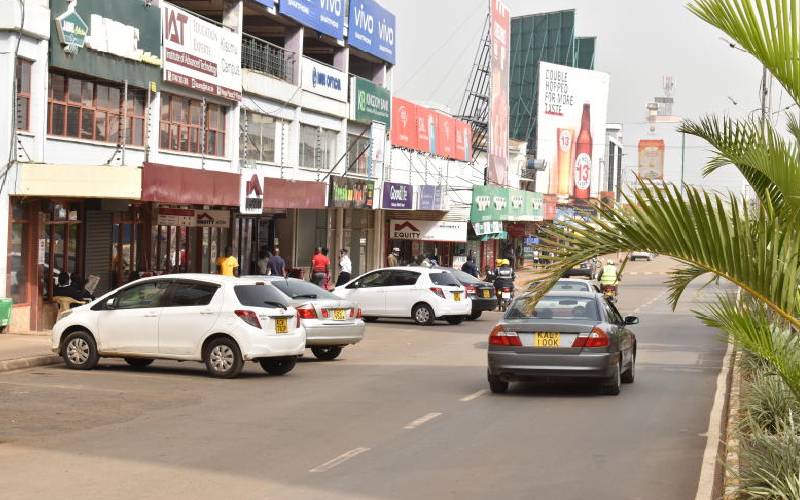×
The Standard e-Paper
Join Thousands Daily

Vehicles parked along Oginga Odinga Street in Kisumu on February 21, 2021. The County government has since banned parking of taxis, private vehicles, tuktuks and bodabodas within the CBD. [Kevine Omollo, Standard]
Kisumu County is once again staring at a decline in revenue after Governor Anyang' Nyong'o's administration barred parking of vehicles in the Central Business District.